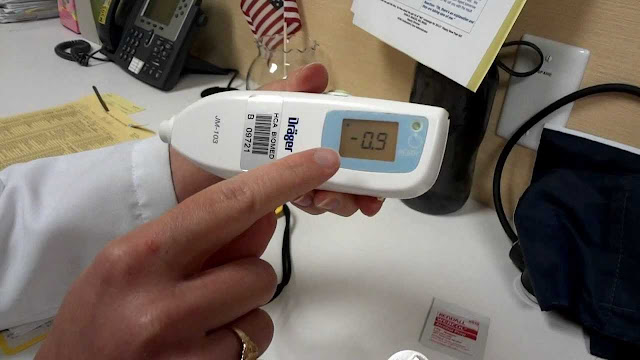Jaundice Meter Are Particularly Useful for Babies and Infants
Jaundice Meter, also known as a bilirubinometer or transcutaneous bilirubinometer, is a medical device used to measure the levels of bilirubin in a patient's blood. Bilirubin is a yellow pigment that is produced when the liver breaks down old red blood cells. Elevated levels of bilirubin can cause the skin and whites of the eyes to turn yellow, a condition known as jaundice.
Jaundice Meter use non-invasive technology to measure the levels of bilirubin by shining light through the skin and measuring the reflection or transmission of the light. The device produces a reading that can be used by healthcare providers to diagnose and monitor jaundice. Jaundice Metes are especially important for newborns and infants, as they are at a higher risk of developing jaundice due to their immature liver function and high rate of red blood cell turnover. Early detection and monitoring of bilirubin levels can prevent complications such as kernicterus, a rare but serious type of brain damage that can occur in severe cases of jaundice.
According to Coherent Market Insights the Jaundice Meter Market Size, Share, Outlook, and Opportunity Analysis, 2022-2028.
Different Jaundice Meter models may have different features and operating procedures, so it's important to follow the manufacturer's instructions for the specific device being used. The use of a Jaundice Mete is just one tool in diagnosing and monitoring jaundice, and should be used in conjunction with other clinical observations and tests.
Nausea and vomiting: Jaundice Meter can also cause nausea and vomiting, especially in cases where there is an underlying liver or gallbladder disease. Weight loss: Jaundice can cause unintentional weight loss, as the body may not be able to absorb and utilize nutrients from food properly. Mental confusion: In severe cases of jaundice, patients may experience mental confusion or even coma. This is due to the buildup of toxins in the body that can affect brain function.
Increased risk of infections: Jaundice can weaken the immune system, making patients more susceptible to infections. In summary, jaundice can cause several side effects that can affect a patient's quality of life. If left untreated, it can also lead to serious complications such as brain damage or liver failure. It's important to seek medical attention if you experience symptoms of jaundice or any other medical condition.


.jpg)

Comments
Post a Comment